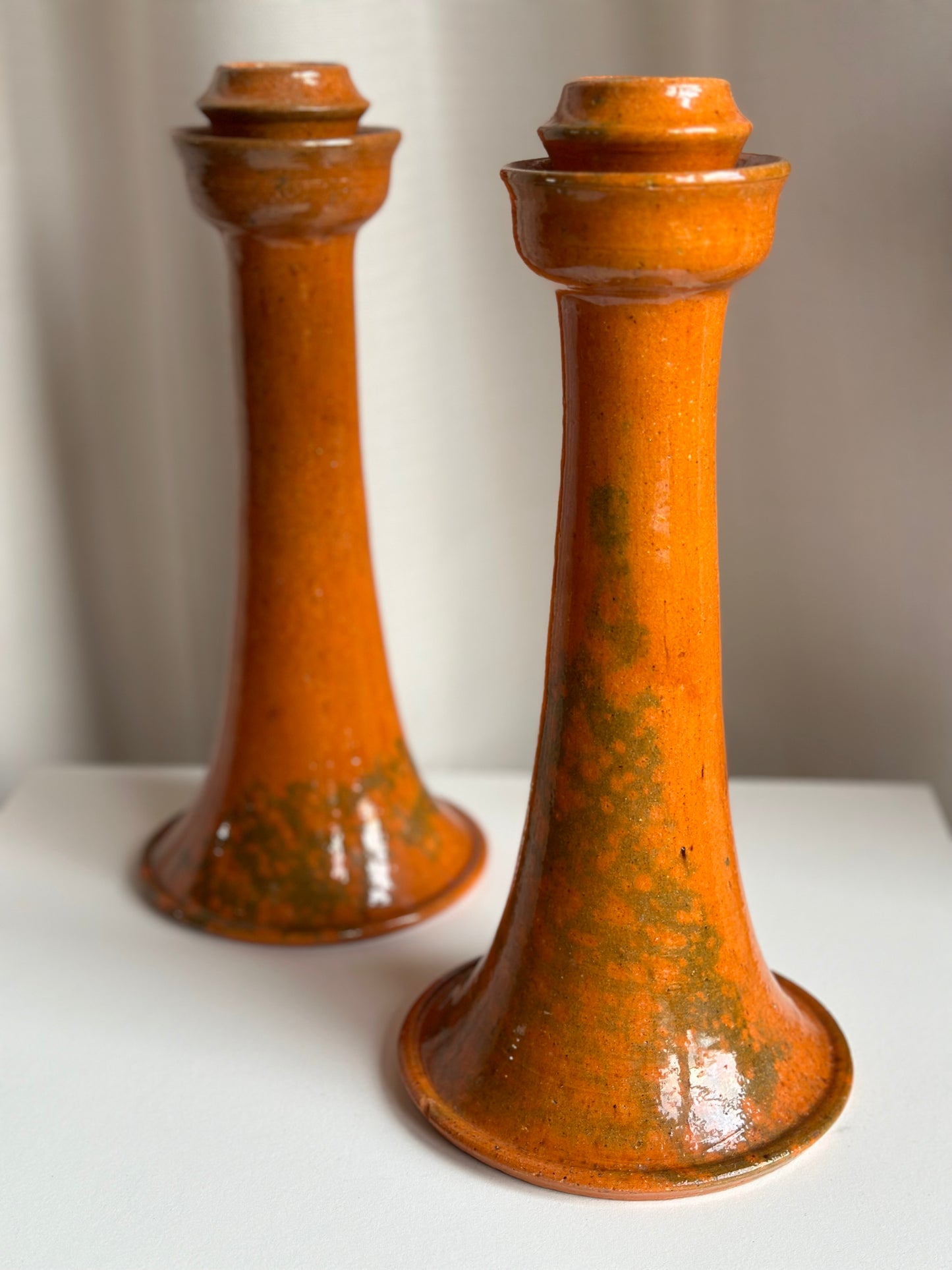SATURDAY GENERATION
1923-'59, JUGTOWN rare Orange "Accidental" Lead-Glazed Candlesticks (pair)
1923-'59, JUGTOWN rare Orange "Accidental" Lead-Glazed Candlesticks (pair)
Couldn't load pickup availability
Jugtown Pottery, near Seagrove in the center of North Carolina, was founded in 1917 by Jacques and Juliana Royster Busbee, artists and art enthusiasts from the state capital city of Raleigh. After discovering an orange pie dish made of clay at a county fair in NC, they traced the pie dishes’ origin to Moore County and found other orange and earthenware style pottery and salt glazed wares being made by the local potters. Salt glaze wares were produced by adding salt to the kiln near the end of the firing at or near the maturing temperature of the clay. At times pots were embellished with blue or simple incising and almost entirely utilitarian. With Prohibition in 1907 and the beginning of industrial methods of vessels for containment, the potters began to find other means to support their families than pottery making alone. The Busbees saw an opportunity to revive a then-dwindling craft. Juliana started a tea room called the Village Store in 1918 in Manhattan in order to market the pots to New Yorkers. The first orders for pots for the Village Store at 60 Washington Square in Greenwich Village were given to four Seagrove area potters with their own wheels and kilns: Henry Chrisco, Rufus Owen, James H. Owen and J.W. Teague. These potters made the utilitarian pieces that had served local needs for generations. The Busbees soon found that they wanted to go beyond the area’s utilitarian shapes and glazes.
Many examples of these early orange and salt glaze with cobalt pieces have been found in the northeastern states. Some pieces bear the J.H. Owen stamp, and a few bear the Jugtown stamp. (https://benowenpottery.com/history)
Share




